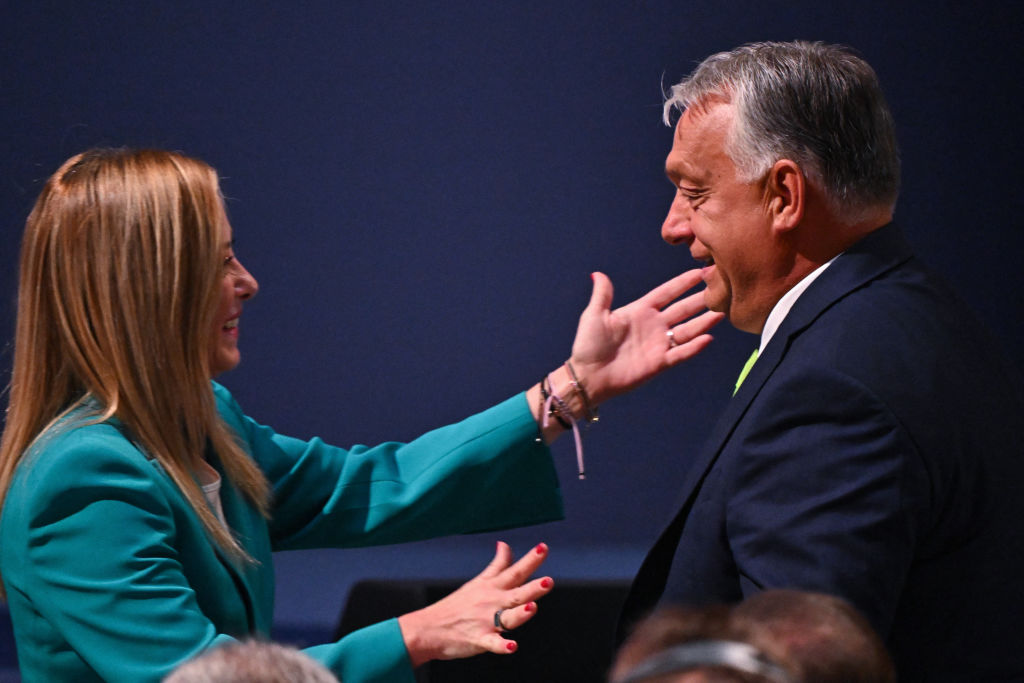The Right is on the march across the continent, declared worried liberals and ecstatic conservatives alike as the results of the elections to the European Parliament came through on Sunday night. “No!” say others — the centre held, that is the story, and it was the Greens and the Liberals which performed badly. “No!” comes the reply to this — just look at the results in Scandinavia where the Greens and the Left outperformed expectations. And on and on we go.
But how can all this be true at the same time? Because Europe is large, it contains multitudes. The most straightforward answer is that Europe is not yet a single functioning polity with a single functioning demos stretching over the continent. In Poland, for example, Donald Tusk’s pro-European centrist party performed well with a campaign painting the opposition as soft on Russia. In Italy, meanwhile, the apparently “populist” but pro-Ukrainian Giorgia Meloni triumphed, while in France Marine Le Pen’s Russophile National Rally secured an astonishing victory over Emmanuel Macron.
In one sense, then, the story of European politics is that it remains astonishingly national. Despite the best efforts of reforming federalists over the years, there are no Europe-wide parties for voters to endorse or oppose. Instead, each country elects to the European Parliament its own national parties, reflecting each country’s specific national politics. In Spain and Portugal, for example, there was no significant populist surge, with the old parties of centre-left and centre-right reasserting their dominance at the expense of the new anti-establishment parties which once looked likely to replace them.
Yet, if we peer a little closer at the results over the weekend, it is possible to detect the first real stirrings of a genuine pan-European political mood starting to take hold. The irony, however, is that this is not being driven by the usual pro-European integrationist parties of the past, but is instead being forged by the conservative nationalist parties, many of which began as distinctly Eurosceptic movements critical of Brussels.
And so, while it is true that the traditional establishment blocs — both centre-left or centre-right — in the European Parliament largely held their ground in these elections, there is little doubt that the anti-establishment Right overall is becoming a growing and consistent presence across the continent, sharing common traits including hostility to immigration, Islam and Net Zero, particularly in the original “core” of the EU. In the Netherlands, Geert Wilders’s Freedom Party is entering government; in Germany, the AfD is now the biggest party in the east; in France, Le Pen’s National Rally has become the biggest single party in the European Parliament; and in Italy Meloni is ascendant.
Where once the traditional parties of Europe hoped to quarantine these anti-establishment parties on their Right, today it looks increasingly implausible that such a policy will hold in the long run. The walls between the centre-right and “populist” Right have already started breaking apart nationally, whether in the Netherlands, Austria or Italy. Perhaps they will soon in Britain, too.











Join the discussion
Join like minded readers that support our journalism by becoming a paid subscriber
To join the discussion in the comments, become a paid subscriber.
Join like minded readers that support our journalism, read unlimited articles and enjoy other subscriber-only benefits.
Subscribe